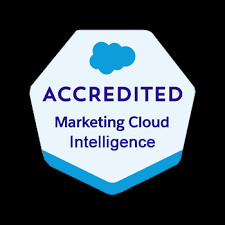Processing weekly payments can often become time-consuming, with organizations spending significant time just tracking payments post-invoice. Timely updates on payment processing have been a longstanding priority, particularly for companies needing flexible payment options to meet beneficiary needs. The integration of Stripe with Salesforce addresses these challenges, offering a streamlined, efficient solution. Salesforce and Stripe Integration.
With a focus on faster processing, this integration enhances payment management, invoicing, and financial oversight. Here’s an overview of the benefits that Stripe and Salesforce integration brings to businesses.
Key Benefits of Integrating Stripe with Salesforce
Modern businesses demand efficient, seamless transactions. Here are some of the major advantages of combining Stripe and Salesforce:
- Streamlined Customer Records
Managing customer data across multiple channels is often challenging. By integrating Salesforce with Stripe, businesses can consolidate transaction histories and customer interactions in a single, accessible location. This centralization provides a complete view of each customer journey, empowering organizations to deliver personalized experiences based on customer behavior. - Simplified Payment Processing
A frictionless payment experience is vital in any online shopping journey. The integration allows for a seamlessly embedded payment process within the customer journey, making transactions smoother and secure, enhancing user satisfaction, and supporting streamlined financial operations. - Enhanced Customer Experience
The combination of Stripe and Salesforce enables businesses to access detailed customer histories, enabling a deeper understanding of customer interests. This information supports personalized recommendations, which can significantly increase the likelihood of repeat purchases and customer loyalty. - Improved Subscription Management
For businesses with subscription models, managing recurring payments and customer preferences can be challenging. With Stripe and Salesforce integration, subscription management becomes intuitive. A centralized dashboard enables easy upgrades, cancellations, and payment scheduling, creating a seamless subscription experience for customers. - Customizable Reporting
Data-driven insights are essential, and with this integration, businesses can create custom reports and dashboards tailored to specific needs. Transforming raw data into actionable insights allows organizations to refine strategies and foster growth. - Targeted Marketing Opportunities
The integration also facilitates personalized marketing by combining transactional data with customer profiles. Businesses can launch highly targeted campaigns for specific segments, boosting engagement and driving higher retention rates.
Why Businesses Should Consider Salesforce and Stripe Integration
Having implemented this integration for various clients, we have seen how it supports efficient operations. Here are a few reasons why businesses should consider this approach:
- Streamlined Sales Processes
With the integration, sales teams can generate quotes, accept payments, and set quotas—all within the Salesforce platform. This eliminates manual data entry, increasing efficiency and allowing the sales team to focus on high-priority tasks. - Enhanced Payment Management
Businesses can easily create and manage orders and payments within Salesforce. When payments are processed through Stripe, details are automatically synced to Salesforce, enabling accurate tracking of payments and order status, ensuring financial records stay up-to-date. - Automated Workflows
This integration enables automated workflows and notifications for payment events. For example, businesses can automatically notify customers of successful payments, transaction failures, or upcoming subscription renewals, enhancing communication and boosting customer engagement.
Simplify Payments with Salesforce and Stripe Integration
The Stripe and Salesforce integration represents a transformative opportunity for businesses to improve operational efficiency and customer experience. Beyond a simple tool pairing, this integration paves the way for scalable, complex business operations.
Successful integration, however, requires knowledgeable professionals who understand the nuances of customization to fit each organization’s unique needs. Reach out to experienced experts to optimize your integration and harness its full potential.













